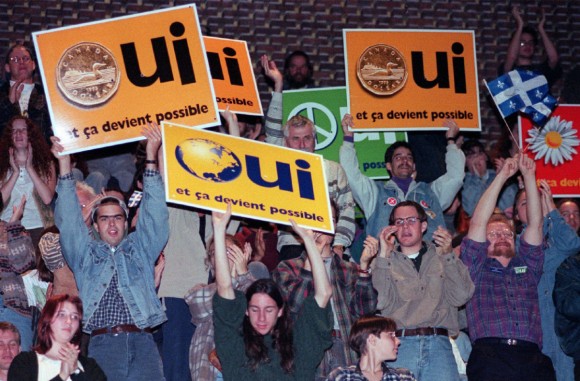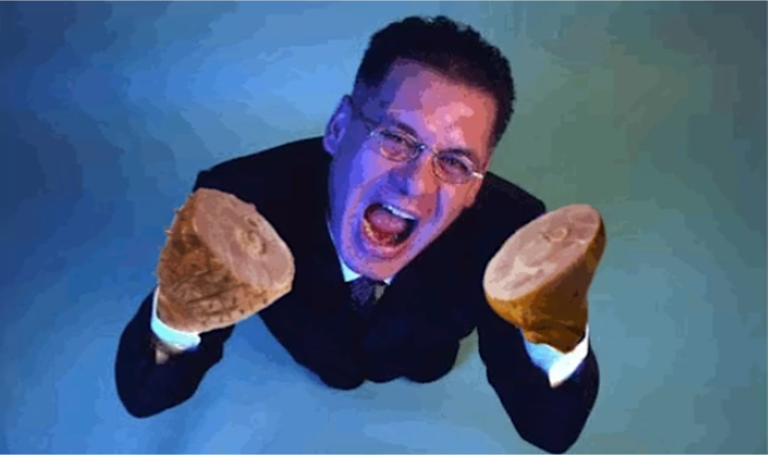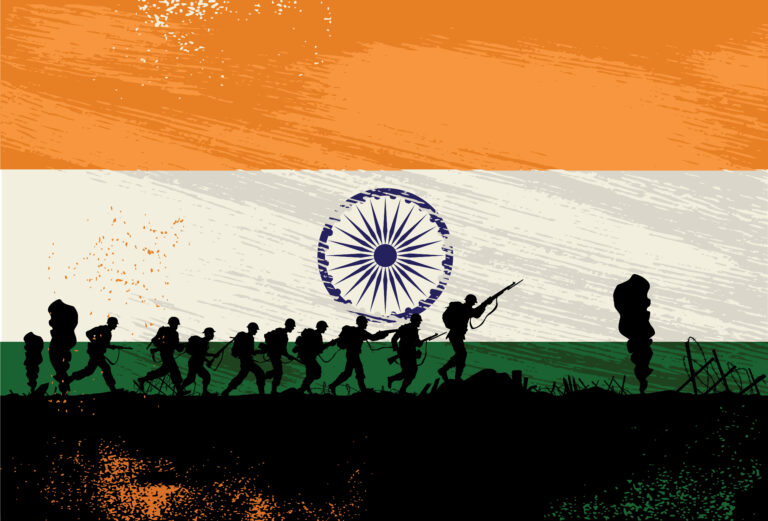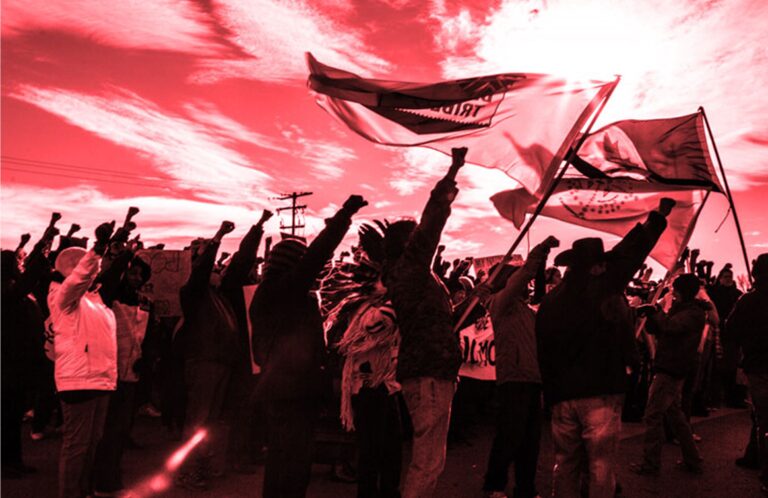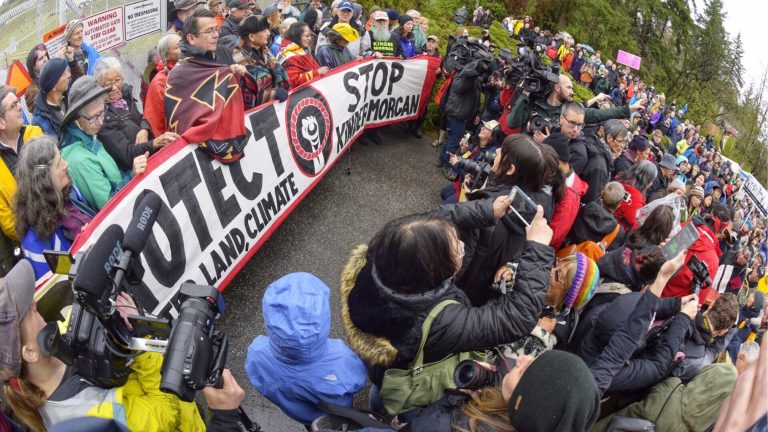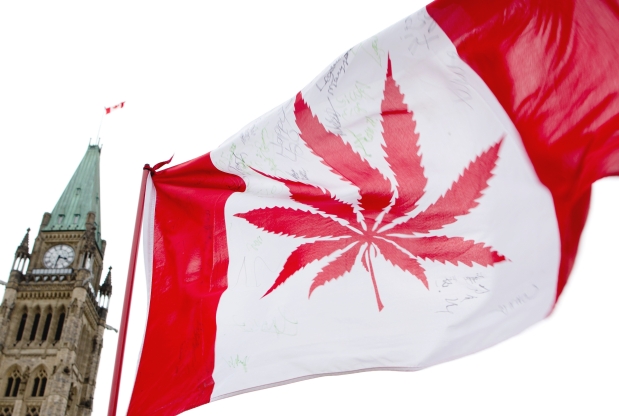Those who want Canada’s Constitution repaired, renewed, revitalized, re-jigged, re-worked, or otherwise re-opened, need to spend a working vacation with a bomb squad. They need refreshment in their understanding of what happens when something that isn’t right goes completely wrong. The rest of us should be given leave to head for the hills.
If that sounds alarmist – hey, it’s just a constitution – it is probably because too many of us have already forgotten the catastrophe of the last round of nation building in the late 1980s and early 1990s. In the kind of paradox that particularly bedevils politics, it was actually a well-intentioned attempt to fix the horrendous damage done by the previous round of history-making dreams. And it put us squarely on the road to hell.
I was in the streets of Montreal in June 1990 reporting on tens of thousands Quebecers marching in the annual St. Jean Baptiste Day parade. The Meech Lake Accord had staggered, stumbled, crawled on its belly and ignominiously expired only the day before, and I was sure I was watching a death march for my country.
The Meech Accord, after all, was about bringing Quebec “in” to the Constitution it had purportedly been left out of in 1982. Its key promise was that Quebec would be constitutionally recognized as a “distinct society” within Canada, which was widely interpreted as meaning it would have a special status from the other provinces in constitutional decisions – especially those affecting language and culture. Quebecers, unquestionably being spun and stoked by grinning political opportunists, were enraged at what was perceived as a reneging of irreparable proportions. They had taken, one last time, Rene Levesque’s beau risque offederalism and, in their eyes, been made fools of by the rest of the country.
The kicker, of course, was that they weren’t alone in their rage. Within days of that St. Jean Baptiste march, I was behind the barricades at Oka, Quebec, and later in the streets of nearby Chateauguay, as armed natives held whole communities hostage.
Ostensibly, the spark was a localized dispute over expansion of the Oka golf course onto land claimed by First Nations. In the collective consciousness, however, there was natural linkage with the still-fresh constitutional debacle. First Nations groups were as angry as Quebecers over Meech – not at its defeat, which they helped engineer, but because it had failed to respond to their efforts to entrench an “inherent right to self-government” in the Constitution. It took the Canadian army a long, hot summer to restore law and order. The country, it seemed, was seething. Everyone, everywhere, was angry with someone else.
Winter, as it will in Canada, let cooler heads prevail but did nothing to salve the underlying hostility in a nation holding a knife to its own throat. When the doomed Mulroney government tried to make amends for its tragic incompetence on the Meech Accord with a second round of constitution making in Charlottetown, history did not repeat itself as farce but as slapstick. Led by that panjandrum of political pratfalls, Joe Clark, the entire Charlottetown Accord process was the kind of joke that produces only two kinds of laughter: cruel and silent.
I was at the Charlottetown Accord’s pathetic denouement in Prince Albert, Saskatchewan and Baie Comeau, Quebec watching Prime Minister Mulroney’s deus ex machina attempt to save himself, his party, and the country from a second constitutional conflagration in less than three years. In the hometown of John Diefenbaker, a hand-picked Tory crowd sat, stone-faced, on its hands lest a nervous twitch by anyone be interpreted by the desperate Mulroneyites as something approaching applause.
In the prime minister’s own hometown, the humiliation was even worse. As the PM’s stem winder speech wound down, a man at the back began shouting “Brian, Brian, Brian” – the political rally equivalent of an altar call. The audience, as one, pursed its lips and pretended to be hard of hearing, essentially turning its back on its most famous son. Afterward, the prime minister alternated between apoplectic embarrassment and the ingratiation of an optimistic fugitive abruptly made aware the jig is up. Within months, he had resigned. Within weeks of his resignation, his former party suffered the most cataclysmic defeat in Canadian political history: reduction from majority government to a mere two seats in the House of Commons.
But even the electorate’s scourging of Canada’s founding party was insufficient to purge the fury unleashed by well-intentioned politicians determined to complete and renew the Constitution. Just two years later, Canada came within less than a percentage point of sundering when the results of the 1995 Quebec referendum results were counted. What began with noble minds and tall foreheads murmuring wisdom in the pastoral calm of Meech Lake ended like an undefused bomb going off in a town square.
Those who would dismiss the simile as hyperbolic have either forgotten, or weren’t around for, the fear, bewilderment and political PTSD that followed Canada’s 1995 near-death experience. Even those who do remember – who were around – could be excused for losing the thread of connections between politicians playing constitutional Mr. Fix-it in 1988 and the too close defeat of Quebec separatism in the mid-1990s. People do have lives. Few get to – or would want to – spend their lives within shouting distance of such shenanigans.
It is reasonable to argue, at least in the abstract, that we should not fail to do what needs to be done because we fear repeating the failures of others. Questions of competence aside, however, to have lived through this country’s last disastrous round of constitution-making is to be obliged to ask whether Canada is even constitutionally capable of improving on the botch-job of 1982. There are so many powers and principalities embedded in the very structure of this country, such a multiplicity of micro-sites of self-interest, that, horrifying as it sounds, Pierre Trudeau’s imprudent legacy might be as good as we are ever going to get.
Certainly, one major provincial political party, the Coalition Avenir Québec, seems to be following that reasoning with its platform of a minimum 10-year moratorium on all talk of constitutional reform, including sovereignty. The clear implication of the CAQ’s position is that we can endure the status quo, as bad as it is, for at least another half-generation.
It’s counsel the rest of Canada would do well to follow, if only because in that decade, God willing, we might just sleep long enough to forget the mania for constitutionalism foisted upon us by the Trudeauites of yore. We might then return to some version of our origins as a parliamentary democracy where the House of Commons, and to a lesser extent the Senate, articulates the general shape of the nation. In other words, we may, if well enough is left alone long enough, find ourselves in a time when the polis and politics – not barristers, solicitors and nine unelected judges in ermine robes – are once again the primary arbiters of public policy.
This, it seems to me, is the clinching argument for refusing to re-open the Constitution. But we must also recognize that even if those with perfect expertise arrived to undertake the task of fixing what has previously failed, our energies, our focus, our time and money, our best and brightest, would be absorbed in a schema that, by its nature, abrogate Canada’s natural tradition of Parliamentary supremacy. Worse, we would draw those energies, that focus, time, money and our best and brightest, away from the political renewal that we so desperately need.
To take but one example of why that desperation exists, this year we have witnessed a situation where the judicial branch summarily informed the executive branch that Parliament is legally unable to reform itself. The message was shocking enough but what was truly appalling was the broad political reaction which oscillated pathetically between partisan smirking at the “stinging rebuke” given the incumbent prime minister, and a generalized shrug that it didn’t matter because Parliament itself no longer matters anyway.
The partisan response can at least be understood as natural to skull-and-bones mercenaries. However, the reflexive attitude that no one need care if Parliament can’t be changed because no one cares about Parliament as it exists should be of fundamental concern to anyone who treasures liberal democracy and self-governance. It is at least the beginning – it might even be the fulfillment – of the abnegation of political possibility, never mind political will.
If such a course continues, if engagement in the possibilities of political will is not revived, history shows us that the most perfect constitution imaginable won’t save us from the tyrannies of the guardians. We will find ourselves mired in a system of governance under which all social questions, tensions, and conflicts are deferred to a hierarchy of legalists deflecting upwards to a mere nine omnipotentates at the top. Indeed, we are already head and shoulders into that frightful trap as evidenced by the courts’ increasingly flippant attitude toward the ancient doctrine of stare decisis, the principle of precedent upon which our common law tradition, and the legal branch’s relationship to Parliament, is built. One of the country’s leading constitutional lawyers said recently in my hearing: “It used to be that you could rely on a (legal precedent) being respected for at least 20 years. Now, I wouldn’t count on anything over 10. Before long….”
Before long, we will be a country shaped not by Parliamentary political debate, not even by broad constitutional design, not even by so-called judge-made law, but rather by sheer judicial whim. There will be consequences, chief among them the conditioned acceptance of what Vaclav Havel, in his long essay The Power of the Powerless, called soft totalitarianism.
By soft totalitarianism, Havel did not mean the midnight knock at the door or torture by psychotic guards at a secret prison. Rather, he said, it is the condition a population falls under when non-democratic centres of power leave citizens not only incapable of constructing political arguments in which others might believe but, much worse, driven by fear of what others might think about their beliefs.
The example Havel uses is that of a shopkeeper who places a “Workers of the World Unite” sign in his store window. It is not in the shopkeeper’s interest for the workers of the world to unite. He might not care a whit whether they do or do not unite. But if uniting the world’s workers is the position of the powers that be, the shopkeeper cannot risk that his friends, neighbors, customers, random passers-by, might believe that he believes in something other than the critical importance of the workers of the world uniting.
Conservative minds will go automatically to the areas of social change, proceeding from judicial whim, where there is now serious social and legal risk not only in articulating unpopular political views ineptly, but in being believed to be someone who believes other than as the courts have decreed. Soft totalitarianism gains ground by destabilizing the very territory that once belonged to politics. It does so by replacing the time-honoured dispute-consensus-dissent approach of political life with the constant shape-shifting of constitutional judicial decree. We saw this in last year’s Bedford prostitution ruling, where the Supreme Court struck down laws previously deemed constitutional. And we should not at all be surprised to see it again when the constitutionality of legislation prohibiting euthanasia is argued again in October – and very likely overturned by the Court.
A third, and perhaps most egregious, recent example is the Court’s ruling in the so-called Insite case. It acknowledged that the federal cabinet had the constitutional authority to revoke an experimental permit for a Vancouver-based safe injection site for illegal drug addicts, agreed that the matter properly belonged to the federal government to decide, but substituted its own judgment because it felt it knew better than the minister responsible what was in the best interests of substance abusers.
It was a shocking act of judicial overreach. It was a bald-faced affront to both the regulatory and political authority of a minister of the Crown. But it was also something much, much worse. It was a clear message that the polis no longer needs to do the work of politics. The Court, once a means for ensuring the equitable application of law under the Constitution, is now there to make our political decisions.
Is it any wonder, then, that three new Canadians recently went to court seeking to be exempted from having to swear allegiance to the Queen in order to become citizens? Fortunately, their appeal was rejected on the grounds that the word “Queen” in the citizenship oath is a merely a symbolic stand-in for the longer, more cumbersome phrase, constitutional monarchy. Yet it should make us all feel as though we’ve found unexploded munitions in a child’s playhouse when we think of the implications of our newest citizens seeing the courts – and not us, their fellow citizens – as the proper place to turn to change even the symbolic aspects of our political system.
By its definition, by its nature, by its name, our political system requires engagement with concrete politics, not further elaboration of abstract constitutional constructs. It is requires us to meet, rally, persuade, to choose not just the individuals and parties who govern us, but how and to what end we will govern ourselves.
This is no mere theoretical matter. When the last round of constitutional convulsions were just beginning in 1988, then Quebec Premier Robert Bourassa made a political decision to overrule the Supreme Court by invoking Section 33 of the Charter. In typical Bourassian fashion, the resulting legislation was equal parts farcical and effective in setting out ground rules for the primacy of French in commercial life within the province. His action brought endless derision down on his head, including from within his own cabinet, but he persevered. I disagreed profoundly with aspects of the legislation yet I simultaneously developed an enduring admiration for Bourassa’s willingness to stand up for politics and political solutions.
His instinct for politics has served Quebec far better than his implication in the madness of Meech Lake constitutionalism. His objectives with Meech were historic abstractions. His goal in using Section 33 and introducing the language legislation was simply to obtain linguistic peace on the streets of Quebec.
An amble around Montreal any day of any week can’t help but leave one with a “mission accomplished” feel. While the zealous bureaucrats at the Office québécois de la langue française still prosecute English language infractions, Bourassa’s choice of politics over constitutionalism in linguistic matters led Quebec to the point where even hardline sovereigntists see language as an old issue, a non-issue. As Martin Patriquin recently reported in Maclean’s, this is especially true of the post-referendum generation.
“Language isn’t as important as before,” says Jason Brochu-Valcourt, the vice-president of Conseil de la souveraineté du Québec, which promotes Quebec sovereignty. “Most young people don’t see English as a threat to French. The argument that we need separation because French is threatened is old. I hear English in the streets of Montreal and I think it is part of the richness of the city.”
We must not be lulled, however, into thinking that linguistic calm in Montreal means it is safe to start talking any time soon about the Constitution. The hiding that sovereigntists took in the last federal and provincial elections may have them seeking other political cover for the moment. Grinning opportunists never go entirely way, nor do ideological dreamers. Give them the pretext of another round of broken constitutional promises, and it’s guaranteed there will be another St. Jean Baptiste Day mob pouring angrily through the streets, incensed yet again.
